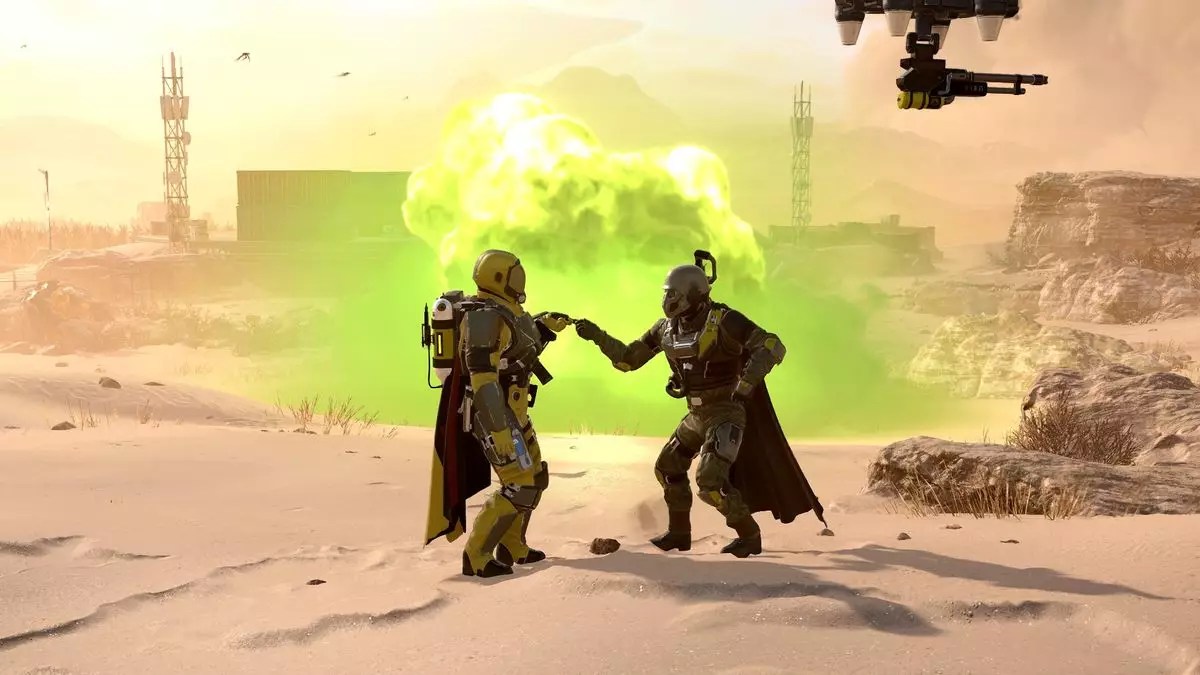In an industry marked by rapid evolution and shifting trends, the importance of music in video games cannot be overstated. Helldivers 2’s composer, Will Roget, faced a crossroads in his artistic career just before the launch of the game. Despite his impressive credentials in orchestral scoring, he fleetingly contemplated a departure from this genre. He believed that the appetite for orchestral soundtracks was waning, alongside the challenges that come with creating such intricate compositions.
This moment of self-doubt is not uncommon in the creative process. Musicians and composers often grapple with concerns about their relevance and the viability of their chosen styles, particularly when confronting the pressures of an ever-changing audience. Roget’s hesitation showcases the vulnerabilities musicians face when balancing personal ambition with external expectations in an increasingly diverse musical landscape.
Social Media Conversations Spark Recognition
The pulse of contemporary gaming culture can often be tracked through social media discourse, where conversations about titles and their attributes unfold in real-time. Johan Pilestedt, the director of Helldivers 2, ignited conversations by praising the game’s original soundtrack on Twitter. His comments resonated deeply, igniting discussions surrounding the music and its impact. Pilestedt’s enthusiasm highlighted an essential aspect of game development: collaboration and recognition among creators can lead to profound shared insights, encouraging artists like Roget to regain their faith in their craft.
The attention garnered from these social media exchanges seemingly lifted Roget’s spirits. He began to understand the influence and enthusiasm players have for the world of gaming music, illustrating how digital platforms can serve as catalysts for recognition. The composer also expressed astonishment at the number of players who engaged with his music, creating content such as reaction videos and cover albums. This surge of creativity from fans reaffirmed the relevance of orchestral composition in contemporary game scoring.
A New Era for Orchestral Music in Gaming
The response to the Helldivers 2 soundtrack serves as an encouraging sign that orchestral music is not only alive but thriving within the gaming community. Roget’s experience reveals a significant shift: what was once seen as a niche might be witnessing a renaissance, as gamers increasingly embrace complex, emotive scores. The conversations surrounding the game highlight how soundtracks can elevate gameplay, creating memorable experiences that resonate long after the credits roll.
Roget’s journey underscores the importance of perseverance and community support. Though he faced discouragement, the enthusiastic responses from players and other musicians helped reignite his passion for orchestral scoring. It illustrates an often-overlooked symbiotic relationship within the gaming industry, one where creators, players, and critics contribute to a broader narrative that can inspire and sustain artists.
The heartfelt testimony from Will Roget reflects not only the struggles of composers in the gaming industry but also serves as a reminder of the power of community engagement. As Helldivers 2 continues to gain acclaim, it reinforces the idea that the landscape of game music is ever-evolving and that there will always be space for rich, orchestral compositions. This situation exemplifies a revitalization of faith in a genre, where each triumphant score serves not only as a backdrop to gameplay but as a testament to the enduring power of music in interactive entertainment.


Leave a Reply